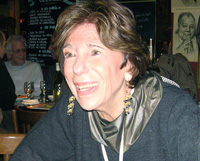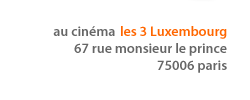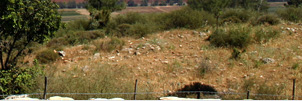Let's Rejoice in the Emergence of Hope
Two years ago, the editorial took stock of the extension of the conflict to all regions of the world and the worsening situation in the Israeli-Palestinian conflict. What a year 2011! After decades of stagnation, the Arab peoples have taken their destinies in hand.
And "discharged" their dictators - Ben Ali, Mubarak, and then Gaddafi. And in Syria, despite Bachar Al Assad's savage repression, the Intifada continues, led by the young people who make up two thirds of the country's population and are the future of an entire region. Beyond the borders of the Middle East, "the word Arab has acquired a new meaning," to quote the Franco-Algerian writer Aziz Chouraqui.
Like an echo to these developments, an unprecedented number of Israelis are rising against the neo-liberal policies of Benyamin Netanyahu claiming social justice that only peace can guarantee. By the end of August 2011, half a million were chanting "The answer to privatization: revolution!" in the streets of Israel's main cities, the equivalent of four million demonstrators in France.
At last, 64 years after the aborted partition plan by the UN, the other 'Arab' state applied for recognition by the UN and obtained more than 100 votes in its favour. Its admission may change the odds: as a new sovereign state, Israel will have to negotiate with them based on the existing resolutions and framework of the UN.
In short, the Middle East is still a long way from having settled all its conflicts, but it is at last on the move, and in the right direction. So the 5th edition of our biennale, Middle East: What Cinema Can Do could not come at a better time; it will rise to the occasion.
With Anne Vaugeois head of the 3 Luxembourg, and Carol Shyman, we have put together an even richer and more varied program, tuned into the ongoing upheaval. Every evening, several personalities, experts, journalists will lead the debates organized by Dominique Vidal and Morgan Canda to clarify and complement the films.
This year, for the first time and for obvious reasons, Egypt enters the festival. Watching Zelal, Marianne Khoury's and the late Mustapha Hasnaoui's startling immersion into two psychiatric hospitals in Cairo allows us to understand why the Egyptians wanted to be done with a society of poverty, repression and frustration.
The festival will honour two departed friends, the Syrian filmmaker Omar Amiralay whose films were shown at previous festivals in his presence, and Juliano Mer-Khamis, brutally murdered outside the Jenin Theatre. He who had followed in his unforgettable mother Arna's footsteps as its director. Juliano's tribute will be highlighted by the world premiere of excerpts of Udi Aloni's work in progress, While Waiting, in the presence of Udi and students of the Freedom Theatre.
More than ever we have the peace of Israel and Palestine at heart, so the festival will quite naturally open with My Land from Moroccan director Nabil Ayouch, which confronts the memories of Palestinians expelled in 1948 from three villages of the West Bank and the reactions of Israelis living close to their ruins today.
In these days of indignation and commitment, we could do no less than to invite the youngest of us all, Stéphane Hessel, to exchange thoughts and comments with you the public, after the screening of two films about him.
After so many years of war, tension, misguided expansion, hope has emerged. Let us welcome it with the filmmakers of the Middle East from November 30 to December 13 at the 3 Luxembourg in Paris.
Janine Halbreich-Euvrard
Paris, November 2011
back to article list
Two years ago, the editorial took stock of the extension of the conflict to all regions of the world and the worsening situation in the Israeli-Palestinian conflict. What a year 2011! After decades of stagnation, the Arab peoples have taken their destinies in hand.
And "discharged" their dictators - Ben Ali, Mubarak, and then Gaddafi. And in Syria, despite Bachar Al Assad's savage repression, the Intifada continues, led by the young people who make up two thirds of the country's population and are the future of an entire region. Beyond the borders of the Middle East, "the word Arab has acquired a new meaning," to quote the Franco-Algerian writer Aziz Chouraqui.
Like an echo to these developments, an unprecedented number of Israelis are rising against the neo-liberal policies of Benyamin Netanyahu claiming social justice that only peace can guarantee. By the end of August 2011, half a million were chanting "The answer to privatization: revolution!" in the streets of Israel's main cities, the equivalent of four million demonstrators in France.
At last, 64 years after the aborted partition plan by the UN, the other 'Arab' state applied for recognition by the UN and obtained more than 100 votes in its favour. Its admission may change the odds: as a new sovereign state, Israel will have to negotiate with them based on the existing resolutions and framework of the UN.
In short, the Middle East is still a long way from having settled all its conflicts, but it is at last on the move, and in the right direction. So the 5th edition of our biennale, Middle East: What Cinema Can Do could not come at a better time; it will rise to the occasion.
With Anne Vaugeois head of the 3 Luxembourg, and Carol Shyman, we have put together an even richer and more varied program, tuned into the ongoing upheaval. Every evening, several personalities, experts, journalists will lead the debates organized by Dominique Vidal and Morgan Canda to clarify and complement the films.
This year, for the first time and for obvious reasons, Egypt enters the festival. Watching Zelal, Marianne Khoury's and the late Mustapha Hasnaoui's startling immersion into two psychiatric hospitals in Cairo allows us to understand why the Egyptians wanted to be done with a society of poverty, repression and frustration.
The festival will honour two departed friends, the Syrian filmmaker Omar Amiralay whose films were shown at previous festivals in his presence, and Juliano Mer-Khamis, brutally murdered outside the Jenin Theatre. He who had followed in his unforgettable mother Arna's footsteps as its director. Juliano's tribute will be highlighted by the world premiere of excerpts of Udi Aloni's work in progress, While Waiting, in the presence of Udi and students of the Freedom Theatre.
More than ever we have the peace of Israel and Palestine at heart, so the festival will quite naturally open with My Land from Moroccan director Nabil Ayouch, which confronts the memories of Palestinians expelled in 1948 from three villages of the West Bank and the reactions of Israelis living close to their ruins today.
In these days of indignation and commitment, we could do no less than to invite the youngest of us all, Stéphane Hessel, to exchange thoughts and comments with you the public, after the screening of two films about him.
After so many years of war, tension, misguided expansion, hope has emerged. Let us welcome it with the filmmakers of the Middle East from November 30 to December 13 at the 3 Luxembourg in Paris.
Janine Halbreich-Euvrard
Paris, November 2011
back to article list









 page created by mayoco: manage your content
page created by mayoco: manage your content